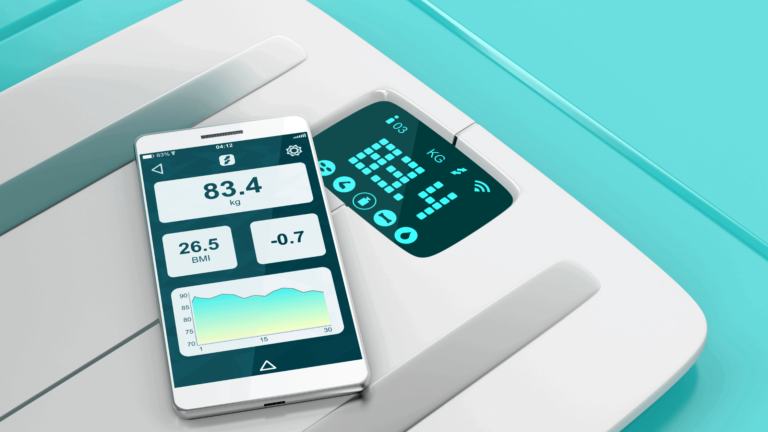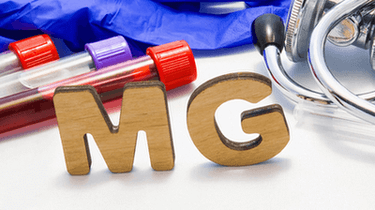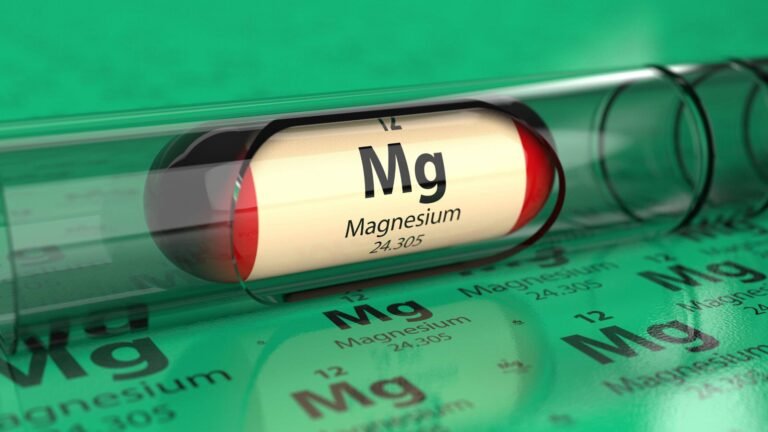12 True Facts About How does sleep affect your health

Getting to sleep is a strange process. You are expected to stop what you’re doing every night, lie down in the dark, and do nothing for eight hours, entering a vulnerable and seemingly unproductive state that will take up one-third of your life.
It’s understandable when children (and adults) fight sleep. Nobody wants to stop having fun or getting things done, and snoozing away the hours can feel like a waste of time.
Of course, it’s not. Beyond the obvious negative symptoms of sleep deprivation, such as irritability and sluggishness, most individuals have a vague idea that it’s not great for their health and well-being.
However, the benefits of sleep extend far beyond mere safety, and many people undervalue its importance. The benefits of sleep and the negative effects of sleep deprivation on your health and well-being are discussed below.
How Does Sleep Affect Your Health
1. When we sleep, our entire bodies are able to recharge.
The brain, along with the rest of the body’s functions, benefits greatly from the maintenance time provided by sleep. Sleep deprivation has physiological consequences beyond just making us feel bad.
Former NIH program director and licensed psychologist and expert in sleep problems Merrill Mitler said, “It’s not a question of comfort.” Insomnia leads to death in laboratory animals. Death results from a cascade of systemic failures that can affect any part of the body. This shows that the bodily processes that occur during sleep are not only necessary but also restorative across the board.
That includes the brain, where sleep is essential for many cognitive functions, including, as Mitler pointed out, the crucial process of memory consolidation, wherein short-term memories are transformed into long-term ones.
The cardiovascular, digestive, and immunological systems all get a boost every night from sleep. During sleep, our bodies have the opportunity to repair and rebuild damaged tissues and cells, and to synthesize new proteins..
Sleep is beneficial to physical and mental well-being and increases cognitive performance.
There is an association between getting enough shut-eye and having a healthy mental disposition, but this is a two-way street.
A meta-analysis published in Sleep Medicine Reviews in 2021 reveals that getting a good night’s sleep can improve one’s mental health, albeit the exact mechanism by which this occurs is still unclear.
The investigation found that taking measures to improve sleep can have a “medium-sized effect” on mental health, including a reduction in anxiety, depression, and rumination. Mitler claims that the ability to control and express one’s emotions is aided by a regular schedule of restorative sleep.
Sleep can also boost your vigilance, which is sometimes known as persistent focus or tonic alertness. This improves your capacity to concentrate for extended periods of time, which may be a lifesaver in many situations, such as meetings, sports, driving, and babysitting.
National Center on Sleep Disorders director Marishka K. Brown has noted that even if you aren’t getting a full night’s sleep, obtaining a few hours of sleep here and there can help enhance vigilance and help you stay aware. However, consciousness and health are not the same things.
That position “does not protect your heart, your pancreas, or your digestion,” Brown warned. A decent night’s rest is necessary for those items to work as intended.
Better learning and memory are two of the many benefits of getting enough sleep.
Acquiring new information, consolidating that information, and retrieving it are the three main components of the learning and memory process (accessing the information later). Consolidation is a crucial element of learning and memory, and it appears to be at its best when we’re asleep.
The hippocampus and neocortex work together to build the foundation for a person’s conscious recollection of a new experience. New memories formed in the hippocampus undergo a process called memory consolidation in which they are transformed into permanent memories that can be stored in other parts of the brain.
Sleep appears to play a vital role in the consolidation of memories and this process might take place weeks to years after the information was first obtained.
The ability to think creatively and solve problems is enhanced by sleep.
Researchers believe that sleep plays a significant role in helping us come up with novel answers to the challenges we face while awake.
When we wake up feeling refreshed, it frequently seems that we are better able to tackle difficulties, especially challenging ones, thanks to the information we gathered in our dreams.
Sleep has been found to improve problem-solving abilities, with slow-wave sleep possibly playing a major role.
For example, in a 2021 study published in Frontiers in Behavioral Neuroscience, researchers found that participants who slept the night after receiving training in a problem-solving task performed better on the subsequent test than those who had received the same training (and waited the same amount of time before the test) but had not slept.
The study found that people who had had more slow-wave sleep in the sleep group also had a higher chance of answering the task than those who had not slept at all.
Sleeping helps your immune system.
The production of T-cells and the protective substances known as cytokines both peak during sleep, making it an important time for the immune system.
An elevated risk for infectious and inflammatory disorders, as well as a chronic inflammatory state, were reported in a 2021 review paper published in Communications Biology.
However, getting a good night’s sleep will strengthen your body’s defenses against illness.
According to a study published in Pflügers Archiv European Journal of Physiology, those whose immune systems were properly rested after receiving an experimental hepatitis A vaccine also produced more T helper cells and antibodies capable of fending off infectious disease.
Results in sports can benefit from a good night’s sleep.
The physical benefits of sleep for post-workout recovery and adaptation are well-known, but sleep’s positive effects on performance in athletics have also been demonstrated.
A 2017 study published in Current Sports Medicine Reports found that athletes who got more and better sleep had better performance and more competitive success. Athletes may also be able to reduce their risk of injury or illness by getting more and better sleep because it increases their immune system and motivates them to train more frequently.
This is supported by studies showing that athletes who obtain at least eight hours of sleep per night or who have greater levels of sleep quality are less likely to get sick or injured while competing. Athletes who get better sleep not only experience fewer injuries but also perform better, according to studies.
A 2019 study published in the International Journal of Sports Medicine found that athletes who trained to improve their response times also improved their sprint timings, tennis serves accuracy, swimming turns, kick stroke efficiency, and free throw and 3-point shooting accuracy.
The physiological consequences of inadequate sleep
Getting insufficient sleep has been linked to increased anxiety.
Jonathan Jun, MD, assistant professor of medicine at Johns Hopkins and specialist in pulmonary, critical care, and sleep medicine, has found that anxiety and sleep both positively and negatively affect mental health.
Jun cited the work of the late William C. Dement, an esteemed sleep researcher who found that disrupting people while they are dreaming causes them to feel angry and uncomfortable the following day.
In addition, Jun noted that subsequent research has indicated that even temporary sleep deprivation can increase anxiety, but this may depend in part on the intensity and length of the sleep loss experienced.
Jun remarked that while it is evident that acute, severe sleep deprivation can increase anxiety, it is less certain that simply being a short sleeper, such as continuously not sleeping as long, will have the same effect.
The inability to think clearly may result from not getting enough sleep.
If you’re sleep deprived, don’t expect your mind to work smoothly. Attention, language, thinking, decision-making, learning, and memory are just some of the cognitive processes that can be negatively impacted by sleep loss.
As one example, sleep deprivation, even of a single night’s duration, has been shown to impair subjects’ attentiveness and performance on a variety of cognitive tasks.
“When you don’t get enough sleep, one of the first things that happen is that you start to not be able to focus,” Jun said.
“You also start to lose your attention span and your ability to react fast to things that are happening around you.” You lose the ability to use the area of your brain that screens incoming information and prioritizes it, as the saying goes.
Coordination can be negatively impacted by a lack of sleep.
Sleep deprivation has a rapid depleting effect on your mental faculties and a more subtle but profound effect on your ability to coordinate your movements. Mitler noted that while the cognitive impacts are more noticeable, the effects on coordination are less severe, but can still cause significant difficulties.
It’s not uncommon for “the impairment process to reach dangerous levels before the person is aware of the unfavorable effects,” he said.
There is a lag in response time as well. “It’s not a huge disparity, usually just tenths of a second,” Mitler said. Still, that’s more than enough to impair your capacity to operate a motor vehicle or a ship.
According to Jun, being up for 24 hours is statistically equivalent to having a blood alcohol percentage of roughly 0.1%, which is over the legal limit for driving while intoxicated.
Jun noted that sleep-deprived persons typically do not recognize their impaired performance and instead believe that they are performing normally. Six hours of sleep a night for two weeks is the same as staying up all night both times, according to research.
People will deny falling asleep behind the wheel, but Jun warns that they won’t be able to respond quickly enough to dangerous situations. They are affected even before they go to sleep.
There is a correlation between sleep deprivation and the development of cardiovascular disease and diabetes.
Sleep deprivation has been linked to an increased risk of cardiovascular disease, which is the leading cause of mortality worldwide and in the United States, according to a review of the available studies published in Sleep Medicine Clinics.
Sleep deprivation has been linked to an increased risk of heart disease, although the exact mechanism by which this occurs is still unclear and requires further study. Several studies have linked insufficient sleep to hormonal changes, such as those that initiate the chronic inflammation that paves the way for atherosclerosis.
Inadequate sleep has also been linked to an increased risk of Type 2 diabetes, the most common type of the condition, according to a review of the literature published in Current Diabetes Reports in 2017.
Similarly, a literature study published in Diabetologia in 2021 found that sleep problems like insomnia, sleep apnea, and restless legs syndrome are associated with an increased risk of developing Type 2 diabetes and diabetes-related comorbidities.
Sleep deprivation has been linked to hormone shifts, inflammation, increased food consumption, and worse decision-making. Many of these are also contributors to obesity, which increases the likelihood of developing diabetes.
Lack of sleep can alter hunger-related hormones including leptin and ghrelin, according to Jun. Lack of sleep causes a drop in leptin, the hormone that signals fullness, and a rise in ghrelin, the hormone that prompts hunger.
In other words, “if you don’t sleep and your leptin levels are low and your ghrelin levels are high, you are going to wake up hungry,” he explained. In addition to other hormonal changes, this could lead to binge eating and weight increase in persons who are chronically sleep-deprived.
Jun said that society as a whole needed to “de-stigmatize” sleep. It’s almost a badge of honor to proclaim that you don’t require much sleep, that you can function adequately on little shut-eye, and that sleeping is for sissies. First and foremost, I say, stop making fun of sleep. Recognize the need of ensuring enough intake.
Colds
No one needs to tell you that a stuffy nose and cough can keep you up all night. However, the likelihood of contracting a cold in the first place increases if you don’t get enough shut-eye. Antibodies, cells, and proteins called cytokines are all lowered as a result, making it harder for your body to combat viruses. If you don’t get enough sleep, it could take you longer to feel better.
Get plenty of sleep if you’re feeling under the weather. Tea with honey, over-the-counter cough syrup, and a hot shower before bed can all help relieve evening congestion and coughing. Propping yourself up with pillows and using a humidifier in bed can help.
Diabetes
Less insulin, a hormone that regulates blood sugar, is produced when you don’t get enough shut-eye. It also reduces the sensitivity of your cells to insulin. High blood sugar levels are a risk factor for developing type 2 diabetes.
Those who don’t get enough shut-eye have roughly double the risk of developing the disease, according to the study’s authors. Furthermore, the quality of your sleep is important. Maintaining healthy blood sugar levels is significantly influenced by the deepest stage of sleep. This may explain the association between sleep disorders like sleep apnea and diabetes.
Conversely, diabetes can create conditions that make sleep difficult. Tingling sensations in the extremities and the urgent need to urinate are classic signs of uncontrolled blood sugar and might keep you awake at night. Or, if your blood sugar is low, you may wake up feeling weak, disoriented, and sweating. Sleep disorders such as apnea and RLS are more likely to occur in people with diabetes.
Keeping your blood sugar under control is an important part of managing your diabetes and maintaining a regular sleep routine.
How can I improve my sleeping habits?
- Adhere to a regular bedtime routine. Keep a regular sleep/wake schedule, even on the weekends.
- Take advantage of the sunlight, particularly in the morning. You may take a stroll before work or during lunch.
- Get in a good amount of exercise every day. It’s best to avoid working out in the hours right before bed.
- When getting ready for bed, natural light is preferable to artificial. Put a blue-light filter on your tablet or smartphone.
- Don’t consume anything, especially sugary or fatty foods, within a few hours of the night.
- It’s important to maintain a calm, dark, and peaceful atmosphere in your bedroom.
- You and your healthcare team should investigate any potential causes of your poor sleep quality.
- Source
Finally
Sleep’s benefits extend far beyond simply restoring your energy levels. Essential to survival. Despite appearances, your body continues to function even while you sleep. Your muscles rebuild themselves, your brain sweeps out waste, and memories are produced. Your body also releases hormones that play a role in everything from your hunger to stress levels.
So, it’s not shocking that getting enough shut-eye can improve your health in general. The risk of issues including obesity, depression, diabetes, and heart disease is increased in people who routinely skip it. Many of these health problems, however, can also serve as precursors to nighttime disruptions.
Related: 8 Health Bath Benefits and 8 Healthy Add-Ins for Your Next Soak






